Centre for Digital Humanities
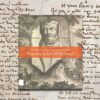
CDH webinar ‘Who wrote the Wilhelmus? – A comparison of Latent Semantic Analysis and Correspondence Analysis for Text Mining’
25 March 2022 @ 15:00 – 16:15 – In this online lecture, PhD candidate Qianqian Qi, will discuss two text mining methods that she uses to explore who wrote the Wilhelmus. Using methods of computational text analysis, a …
Read more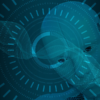
Principles & practices of machine learning: A hands-on training for beginners with applications in the humanities
24 March 2022 @ 10:00 – 16:00 – In this one day course Hugo Schnack, assistant professor Language acquisition, processing and disorders, will give an introduction to what machine learning is, when and how it can be used …
Read more
CANCELLED – Basics of Statistics – Hands-on training day for humanities teachers/researchers
03 March 2022 @ 10:00 – 16:00 – *** CANCELLED – A new date will follow soon *** Data are becoming increasingly important in the humanities. In this one day course, intended for researchers and teachers in the …
Read more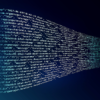
Research Data Management for the humanities
22 February 2022 @ 13:00 – 15:00 – This short Research Data Management (RDM) training has been specially developed for Humanities staff. The short workshop will be given by Frans de Liagre Böhl, data manager for the Faculty …
Read more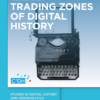
CDH Webinar: Studying Digital History as Cross-Disciplinary Trading Zones
18 February 2022 @ 15:00 – 16:15 – In his recently published book Trading Zones of Digital History, dr. Max Kemman examines digital history collaborations and reflects on the positioning of digital history between the digital and the …
Read more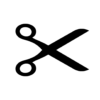
Tutorial data scraping
08 February 2022 @ 13:00 – 16:00 – During this introductory workshop, Sander Prins, Technical Support Assistant at the Centre for Digital Humanities, will teach you the basics of web scraping and guide you through the graphical user …
Read more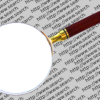
Beyond Ctrl-F: how to semi-automate searches in numerous files using regular expressions, Poppler, GREP and Python
26 January 2022 @ 13:00 – 17:00 – In this hands-on workshop Liliana Melgar (GKG) covers the basic level of automated searching. The training is addressed to humanities researchers or teachers who have little or no experience with …
Read more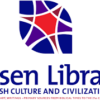
Posen Fellowship in Digital Humanities & Indexing
The Posen Library of Jewish Culture and Civilization seeks to create a cohort of 10-15 Fellows in Digital Humanities & Indexing with graduate level work in digital humanities, digital archiving, or metadata and indexing, as well as a passion for Jewish Studies. Fellows will spend the bulk of their time working with the primary sources…
Read more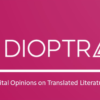
Looking for patterns in readers’ reviews of translated books using DIOPTRA-L
What do English readers expect from translated literature? And how about the Dutch? Professor Haidee Kotze and her research team used big data to look for patterns in the way that ordinary readers review translated literature. Together with the Digital Humanities Lab they developed DIOPTRA-L, a corpus with 280.000 reviews of more than 150 books…
Read more
The Digital Humanities Lab develops digital toolset for major European research project ‘People and Parliament’
The Utrecht Digital Humanities Lab will collaborate with the University of Jyväskylä (Finland) on the political-historical research project ‘People and Parliament’. This collaboration between software developers and historians enables groundbreaking research into parliamentary data. ‘People and Parliament’ is an ambitious project. The research focuses on the use of political language in the national parliaments of…
Read more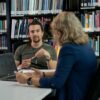
Walk-in hours Research Data Management Support @Living Lab Digital Humanities
Do you have any questions about creating datasets, or sharing them? Or do you want to know more about data security? Feel free to ask these and other questions during the walk-in hours of Research Data Management Support in the Living Lab Digital Humanities. You are welcome every other week on Monday afternoon from 3 –…
Read more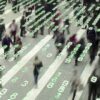
University Library Digital Humanities Course ‘Introduction to R & Data for Humanities’
02 November 2021 @ 09:00 – 17:00 – Registration form R is a powerful scripting language for data handling, data visualisation, and statistics. This workshop specifically targets researchers working within the Humanities, focusing on the analysis of textual …
Read more
